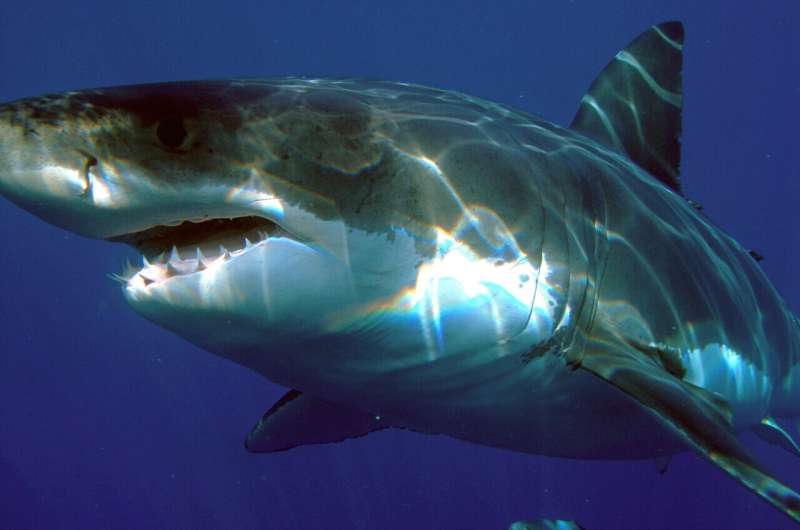Great white sharks are thriving in Monterey Bay thanks to warming waters, study shows

If you’re heading out to California’s Monterey Bay this summer, you’re going to need a bigger boat.
Great white sharks are on the rise in the area, and warming waters caused by climate change are playing a large part, according to a study recently released by the Monterey Bay Aquarium, which tracked the migratory patterns of great whites over two decades.
The vast data, part of the aquarium’s White Shark Research Project, tracked the seasonal travel patterns of 79 juvenile sharks using electronic tags and revealed that the apex predator has not only adapted to the perils of a warming planet but thrived in them.
“These complete metadata sets can provide a vast amount of useful information to fisheries managers and other scientists,” said John O’Sullivan, Monterey Bay Aquarium director of collections and lead author of the study.
In 2015, the study took a dramatic turn when considerable changes in weather patterns led scientists to a new discovery: a booming population of young great white sharks was growing right in their backyard, in the heart of Monterey Bay.
“We started seeing the heat wave after 2014, and that warmer water temperature along the coast opened up a swim corridor over 400 miles from Santa Barbara all the way up to Monterey Bay,” O’Sullivan said. “It was one of the aquarium’s first examples of how climate change affected the marine animal.”
And warming waters near the coast of Santa Cruz brewed the perfect environment for a shark nursery.
Though many of the shark sightings reported near the bay early in the study were adults returning in the fall and winter to feed on seals and sea otters, O’Sullivan said, later sightings were what scientists had been looking for the whole time: juveniles.
Since those sightings of juvenile sharks in 2015, it appears that the Monterey Bay area has become an ideal home for great whites, which usually prefer the more clement waters of the Southern California and Central California coastlines.
For over a century, great whites have faced dangers of food supply shortages, burgeoning fishing practices and illegal trophy hunting and trading. Laws regulating and restricting fishing practices have gone into effect over the years, but it’s difficult for scientists to precisely identify why or how great white sharks have migrated to the Bay Area, O’Sullivan said.
And although the warming waters have been favorable for great whites in Monterey Bay, the long-term implications of climate change for the shark population are unclear.
“These 20 years of data were focused on central Baja and Central California. Now that these animals have moved up to Monterey Bay, we cannot assume that our historic data set is the same thing these animals will be doing in the same region,” O’Sullivan said.
New study finds climate change shrinks and shifts juvenile white shark range
2022 Los Angeles Times.
Distributed by Tribune Content Agency, LLC.
Citation:
Great white sharks are thriving in Monterey Bay thanks to warming waters, study shows (2022, August 4)
retrieved 4 August 2022
from https://phys.org/news/2022-08-great-white-sharks-monterey-bay.html
This document is subject to copyright. Apart from any fair dealing for the purpose of private study or research, no
part may be reproduced without the written permission. The content is provided for information purposes only.
For all the latest Science News Click Here
For the latest news and updates, follow us on Google News.

